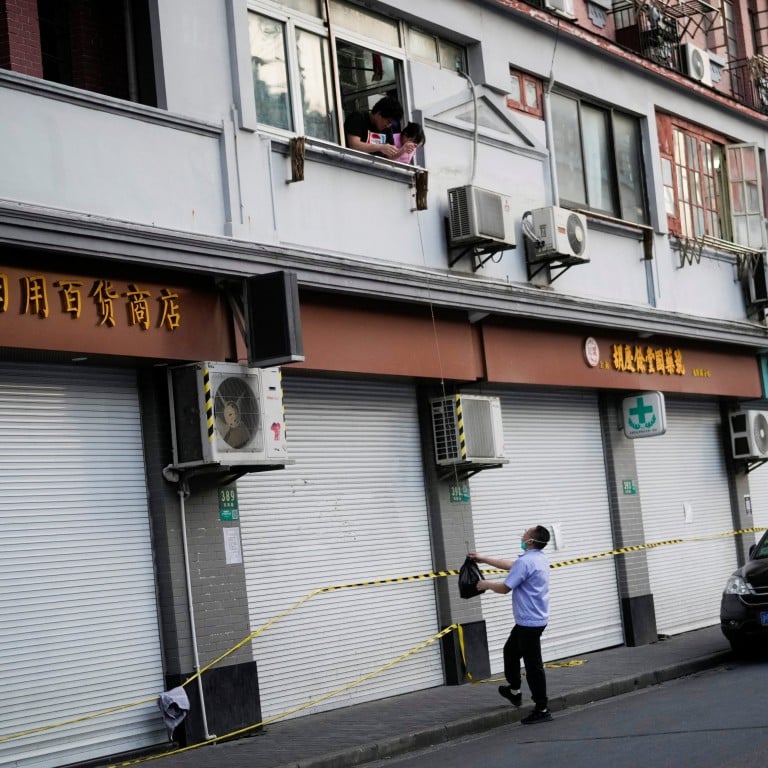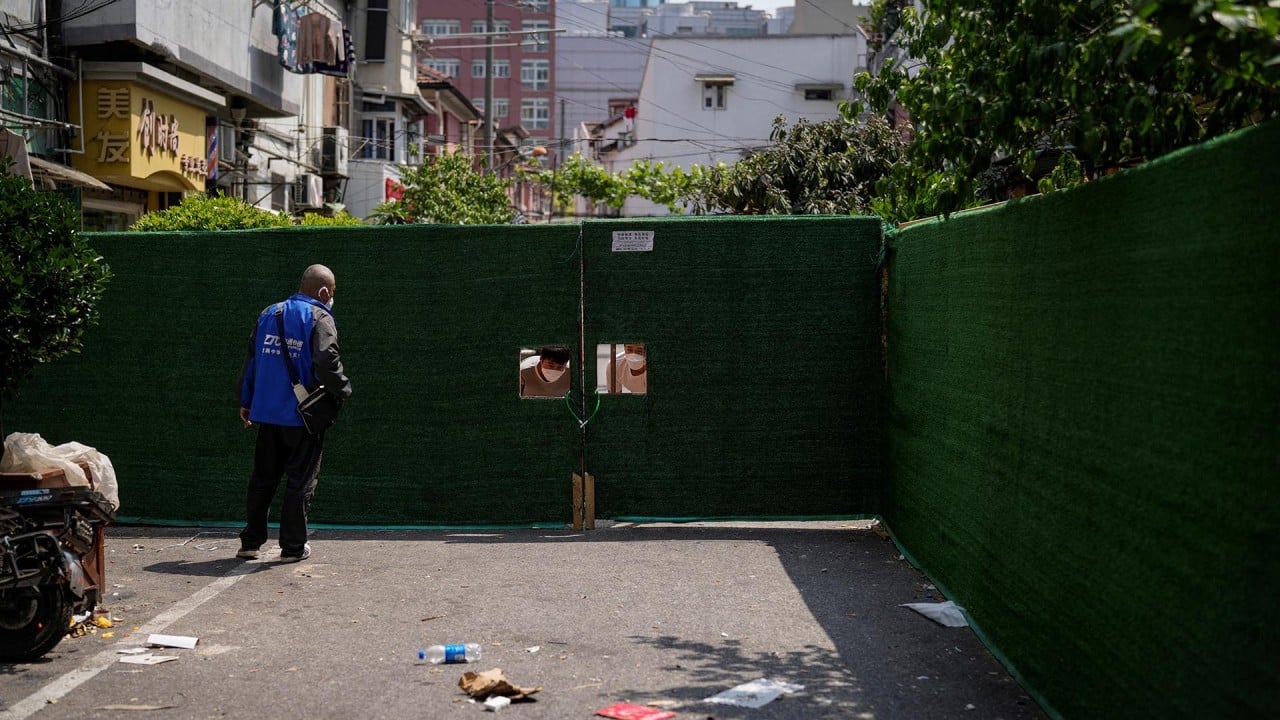
Coronavirus: symptomatic cases in Shanghai climb 50 per cent as ‘static management’ curbs are put in place to prevent resurgence
- Symptomatic cases rose the most since April 29, increasing 49.8 per cent to 322, while overall new cases fell 0.7 per cent to 3,947
- Wanli, the first subdistrict in Shanghai to achieve the so-called societal zero-Covid goal, to embark on ‘static management’ from Monday to guard against the virus
Total new cases edged down 0.7 per cent from a day earlier to 3,947 over the previous 24 hours, according to data released on Monday. It was the smallest drop since April 24 when a 16-day streak of declines started.
Symptomatic cases, however, jumped the most since April 29, increasing 49.8 per cent to 322. Severe cases inched up to 415 from 412 on Sunday, while the number of patients in critical condition fell to 80 from 84.
Zhao Dandan, deputy director of the Shanghai health commission, told a press briefing on Monday that city leaders had urged officials to “do everything possible to overcome difficulties and find ways to solve problems” as the mainland’s commercial and financial capital was determined to win the battle against the Omicron variant following a 38-day citywide lockdown.
Shanghai’s cumulative cases hit 608,000 since the outbreak began on March 1 while total fatalities reached 547, including 11 deaths on Sunday, 37.5 per cent higher than the previous day.
Wanli, the first subdistrict in Shanghai to have achieved the so-called societal zero-Covid goal – a situation when new cases are limited to only people in quarantine – announced on Sunday evening that it would embark on “static management” from Monday to guard against the virus.
“We cannot accept complacency and have to keep up the fight against the virus until the pandemic is entirely contained,” the subdistrict government said in a notice to the area’s 35,000 residents.
Under the static management tactic, a standstill order is implemented and all residents are confined to their homes while the movements of medical workers, food delivery staff and volunteers are curbed.
People living in Wanli, part of northern Shanghai’s Putuo district, have been allowed to leave their residential compounds to go shopping since May 1, after no new cases were found in the “precautionary zones” for 14 straight days.
Shanghai has been chasing the societal zero-Covid goal since mid-April, aiming to keep the virus at bay in low-risk precautionary zones and their surrounding areas before shifting focus to stop the spread of the disease in high-risk zones that are already sealed off.
Hundreds of subdistricts across the city of 25 million people are adopting the same management style from Monday.
The citywide lockdown since April 1 has sparked rising criticism among foreign businesses amid the severe damage it has inflicted upon the local economy.
The Shanghai Japanese Commerce & Industry Club said on Thursday that 63 per cent of respondents to a survey it conducted on April 27-30 had yet to restart operations in their factories.
A flash survey conducted by the American Chamber of Commerce in China between April 29 and May 5 showed that 15 per cent of respondents had yet to reopen operations in Shanghai. About 60 per cent of respondents reported slowed or reduced production capabilities due to lack of employees, inability to get supplies or government-ordered lockdowns, it added.
Since mid-April, the municipal government has given the green light to nearly 2,000 key manufacturers such as Tesla to resume production in “closed loops” – workers essentially sleeping on-site to avoid contact with outsiders.
But Joerg Wuttke, president of the European Union Chamber of Commerce in China, told a media briefing last week that the number of businesses allowed to restart operations represented just “a drop in the ocean”, and urged local authorities to further relax rules to put the city’s economy back on track.
Meanwhile, 4,260 new cases were reported across the mainland in the previous 24 hours, 4.3 per cent lower from a day earlier, according to data published on Monday.
On Monday evening, the Beijing Centre for Disease Control and Prevention said 28 new infections had been discovered, taking the total to 777 since the Omicron variant surfaced in the capital on April 22.
“As city officials strengthen virus-control measures to pursue the societal zero-Covid goal, the pace of production resumption is expected to slow down in the next two days,” said Yin Ran, an angel investor in Shanghai. “The business community hopes the pandemic can be contained in a week so that the lockdown can be eased.”
On Sunday, video clips showing police forcing neighbours of infected people into quarantine sites provoked public anger.
Tong Zhiwei, a professor of constitutional studies at the Shanghai-based East China University of Political Science and Law, wrote in an article that the acts were illegal, and called upon local authorities to enforce antivirus prevention measures in a scientific and legitimate way.
Tong’s account on the microblogging site Weibo was blocked late on Sunday.




